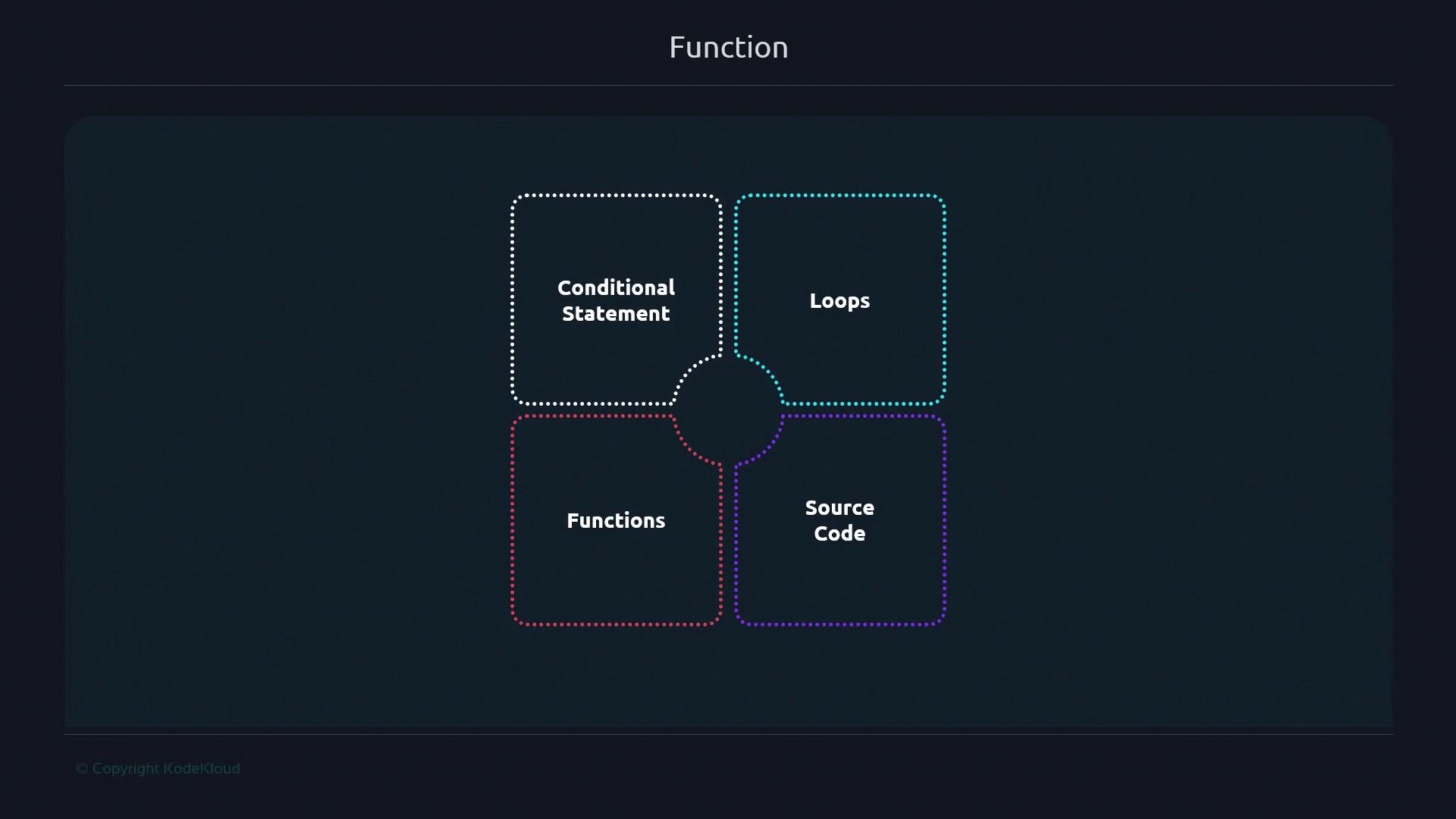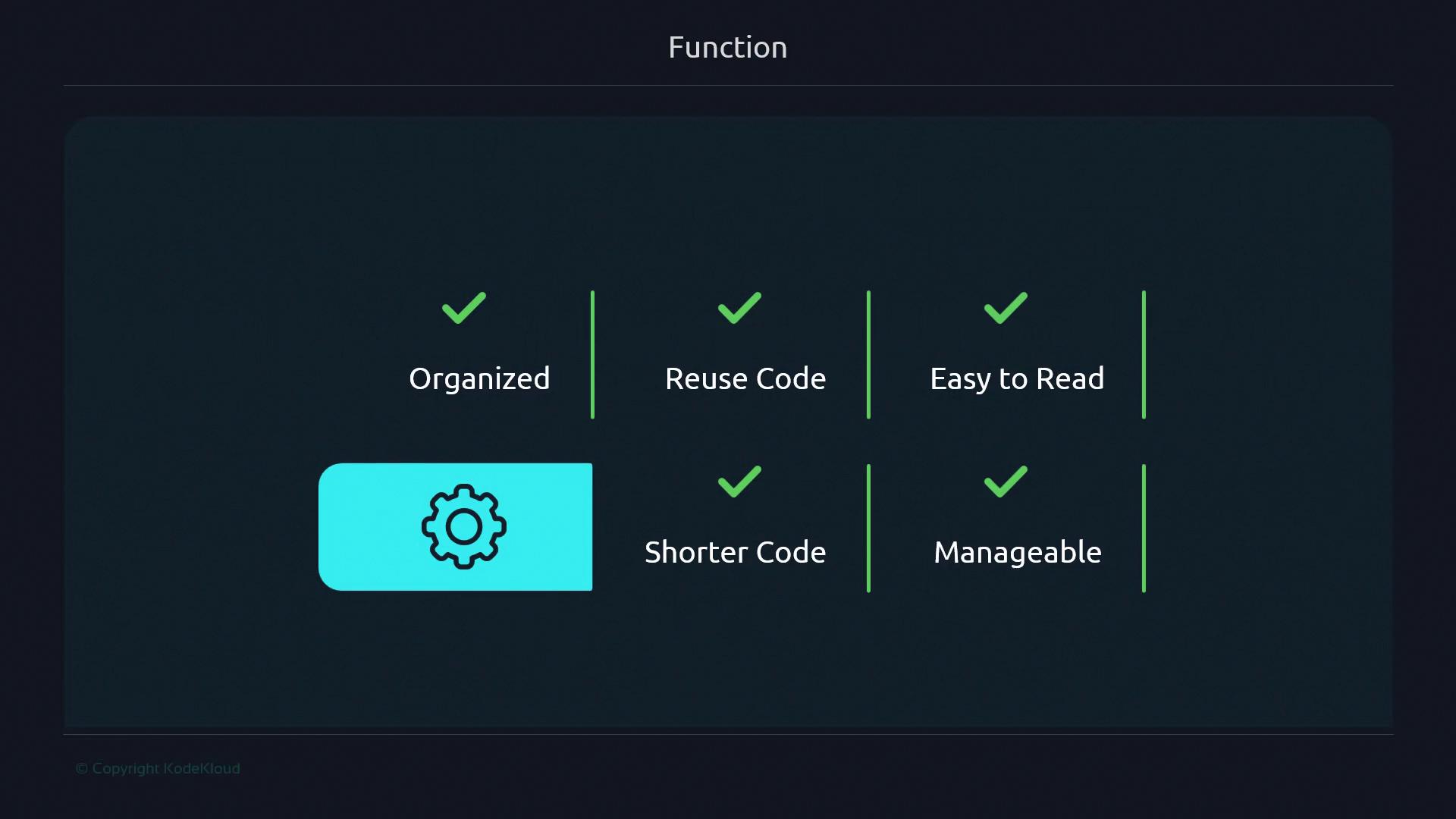Advanced Bash Scripting
Refresher
Functions
In this lesson, you’ll learn how Bash functions help you structure, reuse, and maintain your scripts. While Bash offers conditionals, loops, and script sourcing, functions are key to modular, readable code.

Why Define Functions in Bash?
Functions encapsulate a sequence of commands into a single callable unit. This reduces repetition, minimizes errors, and makes your scripts easier to update and test.
Imagine a chef perfecting a recipe once and reusing it whenever needed—functions work the same way in scripting.
Backup Script: Before vs. After
Without a function:
#!/bin/bash
mkdir backup
cd backup
cp -r "${1}" .
tar -czvf backup.tar.gz *
echo "Backup complete!"
Refactored with a function:
#!/bin/bash
perform_backup() {
mkdir -p backup
cd backup || exit 1
cp -r "${1}" .
tar -czvf backup.tar.gz *
echo "Backup complete!"
}
perform_backup "${1}"
exit 0
Warning
Always use mkdir -p to avoid errors if the directory already exists, and add || exit 1 after cd to stop the script on failure.
Refactoring a Git Clone Example
Grouping related tasks into functions clarifies your script’s main flow.
| Script Version | Content |
|---|---|
| Ad-hoc | bash<br># Clone and count files<br>git clone "${1}"<br>find . -type f | wc -l |
| Refactored | bash<br>git_url="${1}"<br><br>clone_git() {<br> git clone "${1}"<br>}<br><br>count_files() {<br> find . -type f | wc -l<br>}<br><br>clone_git "${git_url}"<br>count_files |
By naming clone_git and count_files, you isolate logic and make testing easier.
Function Declaration Syntax
Bash supports two portable styles. Use the first for maximum compatibility:
| Style | Syntax Example |
|---|---|
| Preferred (POSIX-compatible) | bash<br>my_function() {<br> echo "Hello from my_function"<br>}<br> |
Using function keyword | bash<br>function my_function {<br> echo "Hello from my_function"<br>}<br> |
You can even define and call a function inline:
$ hello() { echo "Hi there"; }
$ hello
Hi there
Local Variables in Functions
Limit variable scope inside functions with local to avoid unintended side effects.
Example where var1 is not visible outside:
#!/bin/bash
my_function() {
local var1="Hello"
}
my_function
echo "${var1}" # No output
Example printing the local variable:
#!/bin/bash
my_function() {
local var1="Hello"
echo "${var1}"
}
my_function # Outputs: Hello
Note
Using local helps prevent variable collisions in larger scripts. For more details, see Bash Scripting Guide.
Benefits of Using Functions
- Organization: Break large scripts into logical units.
- Reusability: Call the same code multiple times without duplication.
- Readability: Name complex logic for better clarity.
- Maintainability: Update one function rather than many code blocks.

Links and References
- GNU Bash Reference Manual
- LinuxCommand.org: Bash Functions
- Stack Overflow: Bash Function Best Practices
Watch Video
Watch video content
Practice Lab
Practice lab